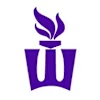Mock Grant Proposal
Used research and networking to match a qualifying local non-profit advocacy center to a statewide grant-making foundation. Wrote a mock proposal showcasing the strengths and servitude of the non-profit and submitted it to the grantee.
1. Describe your organization’s mission, goals, major programs, and their participants.
The Advocacy Center of Winona empowers victims/survivors of sexual and domestic violence. Our primary focus is to ensure the safety of all survivors. The ACW is committed to placing victims’ needs and concerns at the center of our work. At the Advocacy Center of Winona, we are committed to empowering victims and survivors of sexual & domestic violence. Our trained advocates respond to the immediate and ongoing needs of victims of domestic violence and sexual assault 24 hours a day. We provide emergency shelter, assistance filing restraining orders, support groups, and legal support. We are here to provide victims with all the resources they need to make an informed decision.
The Core Values of the ACW:
Self-determination: The ACW affirms and upholds the rights and dignity of all individuals, providing advocacy services in accordance with everyone’s self-determined needs.
Confidentiality/Privacy: The ACW is committed to prioritizing the privacy and security of those who receive our services, including ensuring a confidential service facility, information, and communications.
Survivor-Centered Advocacy: The ACW interactions will be conducted in a respectful, survivor to professional relationship, honoring their strengths, diversity, and individuality.
Stewardship: The ACW will uphold the highest standards of stewardship, fiscal responsibility and accountability to our donors and funders, allowing us to serve clients at no financial cost to survivors.
The Advocacy Center of Winona serves all genders of adults and their children in the rural Winona area with the following services:
Crisis Advocacy and Direct Support
Active and Empathetic listening to hear stories of survivors, safety planning, brainstorming options for survivors, connecting survivors to other community resources.
Emergency Shelter and Relocation Services
Assisting with shelter and connecting survivors with distant relatives or support networks.
Support Group Network
The ACW provides educational and emotional support to adult victims/survivors of domestic violence and sexual assault through various Support Groups. Social emotional support for youth through support groups is also available. Childcare and transportation arrangements can be made.
Legal Advocacy and Justice Assistance
Short Coordinate with victim, law enforcement, and legal prosecution team following an arrest. Attending court with or instead of survivors. Preparing legal protective orders with survivors.
2. Please identify the WFMN Fund for Safety goal or goals that your program will advance. Give a brief description of your proposed work and how the requested funds from WFMN will be used to adapt your work.
The Advocacy Center of Winona will focus its efforts on educating the community to create and strengthen systems and infrastructure to combat gender-based violence. This will align with Goal 1.
1. Strengthen systems and infrastructure to sustain the movement to end gender-based violence, this includes sex trafficking, domestic violence, rape, sexual assault, sexual harassment, exploitation and abuse of elders and people with disabilities, as well as state and structural violence.
Grant funding from the Women’s Foundation of Minnesota will support a part-time housing director to provide coordination and training to the area landlords to promote awareness and advocacy for victims of domestic abuse. If landlords are aware of the issues and struggles of victims of abuse, they will be better prepared to provide a safe living environment to empower the victims to climb out of their abusive situations and improve their lives and the lives of their children. Specifically, the training will discuss issues pertinent to survivors like working with law enforcement to respond to restraining order violations, and conflict situations; installing security lights or cameras near survivors’ entrances; and emotional support such as sending a female along with a male landlord to provide a better sense of safety when meeting personally with survivors and children. Other advocacy could include assisting with providing flexibility with payments, such as spreading out the first month rent or deposit to give the survivor time to get a job and receive paychecks.
3. Based on your answer to the question about goals, describe the outcomes you anticipate during the grant period and your plans for evaluating outcomes.
The Advocacy Center of Winona will use grant monies to specifically reach out to area landlords to create a network of supportive individuals who will increase their understanding of domestic abuse and its victims. When landlords understand the safety and security issues of survivors, they will be more understanding and be more willing to further advocate for survivors and their right to improve their own lives.
Landlords and apartment managers who attend the ACW training sessions will receive a certificate of completion and be listed on a recommended housing list at the ACW. They will be encouraged to maintain communication with the Advocacy Center of Winona to help serve victims and their children as the needs arise.
At the end of the grant period, the ACW will survey both survivors and landlords to ascertain the effectiveness of the services and partnerships coordinated by the housing director and ACW volunteers and board members.
4. Describe who will implement the proposed work, including plans to add staff or assign duties to current staff.
The Advocacy Center of Winona will hire a part-time housing director, who will have a contract to provide training, coordination and advocacy services to the survivors and children who seek assistance from the center. This part-time housing director will also build and maintain professional relationships with area landlords, apartment managers, law enforcement, and community support organizations. Victims and children often need safe housing as a first step before they can start to piece together the details of their new safer life.
5. Describe any partnerships or collaborations you will engage in to support the work, including anticipated roles and responsibilities with the work. Explain the extent to which you currently partner with these groups.
The ACW has been successful, over the decades of its existence, in shaping local policies and procedures regarding violent crimes against victims and has established partnerships with a wide range of organizations and agencies working with women and children. The Advocacy Center of Winona will continue to partner with Project FINE, Grace Place / Winona Volunteers, Winona Police Department, Winona State University, and will seek additional partnerships with Winona Property Management, Edgewater Apartments, Bluff City Properties, Abramson Properties, and other community housing and property management services. The ACW will strengthen its partnership with Winona State University by seeking training space and asking university staff to help provide information for landlord training and for ongoing advocacy for job placement and mental health services. Winona Police will continue to provide protective orders and ACW will ask them to offer self-defense training to adults and children survivors. Grace Place will continue to assist volunteers with housing needs such as furniture and cooking utensils. The various apartments and property managers will be listed as preferred housing as landlords and managers who are trained with ACW.
The ACW also educates its partners in the community on the importance of placing women’s own understanding of their situation and their own choices at the center of all work on domestic violence and sexual assault. The ACW sees activism on women’s and gender issues as part of its ongoing work. Consequently, we work with the statewide coalitions, Minnesota Coalition Against Sexual Assault and Minnesota Coalition for Battered Women, to monitor state and federal legislation regarding violence against women. We also meet with local officials and with candidates for local offices to educate them about issues concerning violence against women. Finally, the ACW has used its position in the community to take public positions on various social and political issues.
6. How do you use an intersectional equity lens in your work? (In what ways do you consider the gender, race and ethnicity, place, sovereignty, socioeconomic class, age, disability, sexual orientation, and immigration status of the people you serve? How do your programs reflect that consideration?)
The Advocacy Center of Winona will always use a dynamic and holistic approach to helping victims and seeking out the best path with them for their success and healing. The victims are seen as whole people, with a wide range of needs including housing, employment, childcare, or mental health assistance. The Advocacy Center of Winona is aware that each victim has numerous identity factors that overlap or intersect. Abuse and gender-based violence affect all demographics, regardless of race, ethnicity, sexuality, gender identity, faith, age, geography, and ability.
With this grant, we will continue to strengthen housing insecure victims and prevent the risk of homelessness after abuse. We currently serve Winona’s unhoused and housing-insecure population by promoting our services at the Winona Warming Center and Grace Place.
The most common demographic of assault is young women between the ages of 18-24. This demographic is typically enrolled in high school or post-secondary education. To reach this vulnerable population, we have an office at Winona State University. We partner with Winona Area Schools, St. Mary’s University, and Minnesota State College Southeast. We know education is powerful for creating social change, so we encourage student victims to continue their education.
Rural families have unique struggles, one of the biggest challenges being the isolation that often occurs in homes outside the town or city boundaries. We established our own transportation system to bring victims to our office regardless of financial situation or driving ability. Our weekly support groups offer a sense of connection and community for residents of Winona and the surrounding area.
We partner with a local nonprofit, Project FINE, to understand and aid refugees and immigrants, regardless of status. Project FINE also coordinates with us to provide translation services and interpreters for appointments, hearings, and documents.
The LGBTQIA+ community is an underserved population that is, on average, more likely to experience sexual assault compared to the general population. Our staff and volunteers receive advocacy training specific to the LGBTQIA+ community. We also employ members of the queer community to assure victims feel comfortable sharing their experiences.
Assault and violence occur disproportionately to disabled individuals. Our office space and meeting locations are accessible to all. Our advocacy training includes disability studies and services. We provide sign language interpreters for hearing-impaired individuals, in addition to other accommodations.
BIPOC women experience an elevated risk of experiencing violence. We strive to pair BIPOC women with counselors, advocates, and psychologists who identify with them and can validate their experiences.
The ACW exists to create a reality that affirms the dignity of all people and the rights of all to freedom from violence, regardless of origin, identity, culture, sexuality, or ability. The
ACW empowers survivors to gain confidence, independence, and access to political power. Our work has always been organized around the assumption that victims know best what will be best for themselves and their children, and so we work with them to understand their options and we support them in the choices that they make. We advocate for an individual’s rights to self-determination, self-direction, and the end of all forms of oppression.
Like this project
Posted Jul 11, 2023
Proposal from domestic violence prevention non-profit to statewide grant-making foundation.




